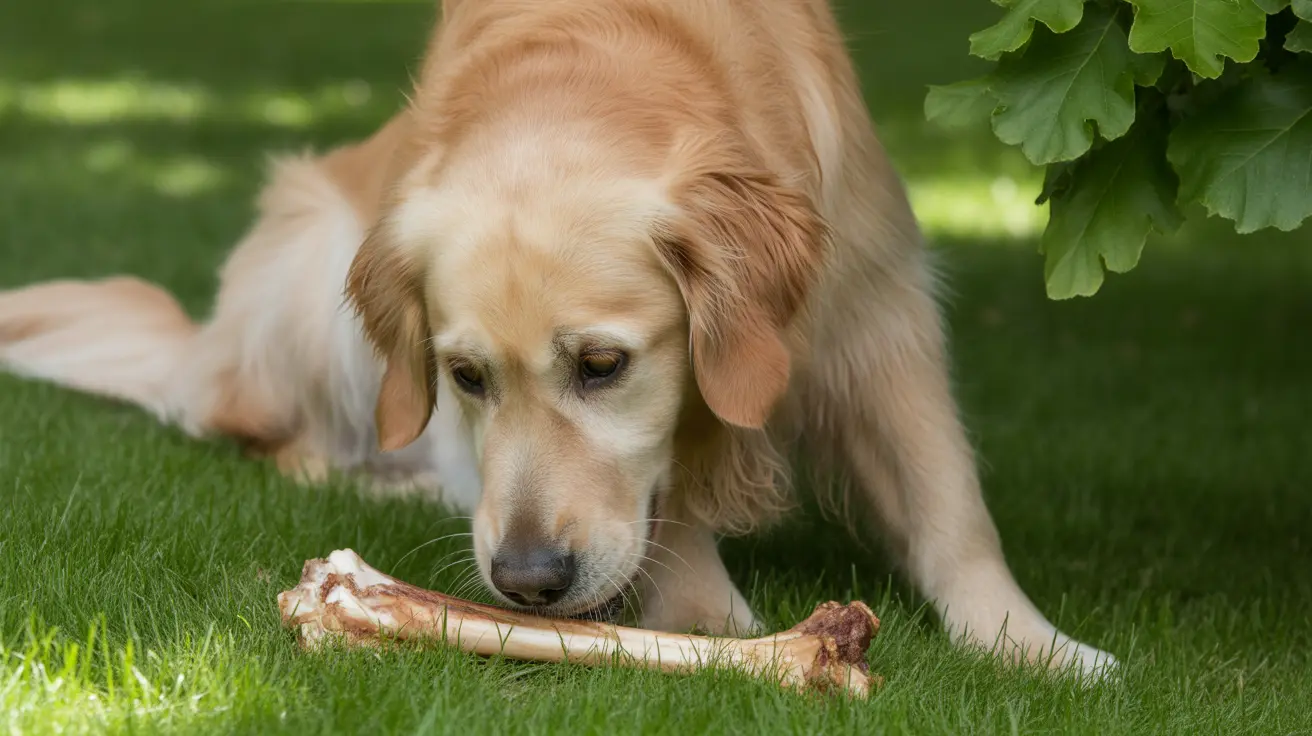The Hidden Dangers of Chicken Bones for Dogs
Many dog owners have wondered whether it's safe to give their furry friends chicken bones, especially after enjoying a family meal. While it might seem natural to share these leftovers with your pet, veterinary experts strongly advise against feeding chicken bones to dogs due to potentially life-threatening risks.
Understanding why chicken bones pose such significant dangers to our canine companions can help prevent serious medical emergencies and ensure our pets' safety. Let's explore the comprehensive risks and what you need to know as a responsible pet owner.
Why Chicken Bones Are Dangerous for Dogs
Cooked chicken bones present several severe hazards to dogs. When cooked, these bones become brittle and prone to splintering, creating sharp fragments that can cause serious internal damage. Unlike raw bones, which maintain some flexibility, cooked bones can snap into jagged pieces that act like tiny daggers in your dog's digestive system.
- Choking hazards from bones lodging in the throat
- Punctures in the digestive tract
- Intestinal blockages requiring emergency surgery
- Internal bleeding from sharp bone fragments
- Bacterial infections from contaminated bones
Emergency Signs to Watch For
If your dog has consumed chicken bones, being alert to warning signs is crucial. Immediate symptoms that require veterinary attention include:
- Gagging or excessive drooling
- Vomiting or diarrhea
- Lethargy or unusual behavior
- Abdominal pain or swelling
- Blood in stool
- Difficulty breathing or coughing
What to Do If Your Dog Eats Chicken Bones
Quick action is essential if your dog manages to eat chicken bones. First, remain calm and prevent your dog from eating any additional bones. Don't attempt to induce vomiting, as this can cause additional damage from bone fragments coming back up.
Contact your veterinarian immediately for professional guidance. They may recommend:
- Bringing your dog in for immediate examination
- Feeding soft bread to help cushion the bone fragments
- Monitoring your dog closely for signs of distress
- X-rays to track the bones' progress through the digestive system
Prevention and Safe Alternatives
The best approach is prevention. Keep all chicken bones and food waste securely disposed of where dogs can't access them. Consider these safer alternatives for dogs who love to chew:
- Specially designed dental chews
- Rubber toys designed for heavy chewers
- Veterinarian-approved raw bones (under supervision)
- Commercial dog treats specifically made for dental health
Frequently Asked Questions
Is it safe for my dog to eat chicken bones, and what are the risks?
No, it's not safe for dogs to eat chicken bones, especially cooked ones. The risks include choking, internal punctures, blockages, and potentially fatal complications from bone splinters.
How do I know if my dog has swallowed a chicken bone, and what symptoms should I look out for?
Watch for signs like gagging, drooling, vomiting, lethargy, abdominal pain, and difficulty defecating. Any unusual behavior after consuming chicken bones warrants immediate veterinary attention.
What should I do if my dog accidentally eats a chicken bone?
Contact your veterinarian immediately for guidance. Don't induce vomiting, as this can cause additional harm. Monitor your dog closely for signs of distress and follow your vet's instructions.
Can raw chicken bones be safer for dogs than cooked ones, and why or why not?
While raw bones are less likely to splinter than cooked bones, they still pose risks including bacterial contamination and potential choking hazards. Consult with your veterinarian before giving any type of bones to your dog.
How can I prevent my dog from eating chicken bones at home or outdoors?
Secure garbage bins, clean plates immediately after meals, and teach your dog "leave it" commands. When walking, keep your dog leashed and watch for discarded bones or food waste.
Conclusion
While dogs may be attracted to chicken bones, the risks far outweigh any perceived benefits. As responsible pet owners, it's crucial to prevent access to these dangerous items and opt for safer alternatives. If your dog does consume chicken bones, prompt veterinary consultation is essential for the best possible outcome.
Remember, prevention is always better than treatment when it comes to protecting our furry friends from the dangers of chicken bones. Keep your emergency vet's contact information readily available, and ensure all family members understand the importance of keeping chicken bones away from your pets.






